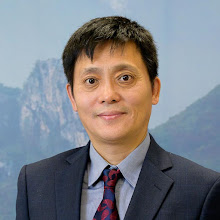Tiejun Tang
Acupuncture is a traditional Chinese medical technique that has been practiced for thousands of years. It involves the insertion of needles into specific points on the body, with the aim of restoring balance and improving health. Over the past few decades, there has been increasing interest in the mechanism of acupuncture treatment, with researchers using modern scientific methods to explore its effects on the body. In this review paper, we will summarize some of the most recent research on the mechanism of acupuncture treatment, focusing on studies published in the past decade.
Mechanism of Acupuncture Treatment:
One of the most widely studied mechanisms of acupuncture treatment is its effect on the central nervous system (CNS). Research has shown that acupuncture can modulate the activity of the hypothalamus-pituitary-adrenal (HPA) axis, which plays a critical role in regulating the body's stress response. Acupuncture has been shown to reduce stress and anxiety, with some studies suggesting that it may increase the release of endogenous opioids and other neurotransmitters such as serotonin and dopamine, which can help to alleviate pain and improve mood (1, 2).
Another mechanism of acupuncture treatment that has received a great deal of attention is its effect on inflammation. Studies have shown that acupuncture can reduce inflammation by modulating the activity of immune cells such as macrophages and T cells, and by decreasing the production of inflammatory cytokines such as tumor necrosis factor (TNF) and interleukin-1β (IL-1β) (3, 4).
In addition, recent research has suggested that acupuncture may modulate the activity of the autonomic nervous system (ANS), which plays a critical role in regulating the body's internal organs. Acupuncture has been shown to increase parasympathetic activity and decrease sympathetic activity, which can help to promote relaxation and improve organ function (5, 6).
Finally, studies have also explored the mechanism of acupuncture treatment in the context of various specific conditions. For example, research has shown that acupuncture can improve symptoms in patients with chronic pain, including low back pain, osteoarthritis, and fibromyalgia (7, 8, 9). A meta-analysis of 29 randomized controlled trials (RCTs) involving over 17,922 patients found that acupuncture was significantly better than no treatment or sham acupuncture for reducing chronic pain, including lower back pain, neck pain, and osteoarthritis-related pain (10).
Acupuncture has also been studied as a potential treatment for neurological disorders such as stroke, Parkinson's disease, and Alzheimer's disease, with some studies suggesting that it may improve cognitive function and reduce inflammation in the brain (11, 12, 13).
Conclusion:
In summary, recent research has provided a great deal of insight into the mechanism of acupuncture treatment. Studies have shown that acupuncture can modulate the activity of the central nervous system, reduce inflammation, and improve autonomic nervous system function. Acupuncture has also been studied as a potential treatment for a wide range of conditions, including chronic pain and neurological disorders. However, more research is needed to fully understand the mechanism of acupuncture treatment, and to determine its efficacy in specific contexts.
References:
1. Napadow V. What has functional connectivity and chemical neuroimaging in fibromyalgia taught us about the mechanisms and management of 'centralized' pain? Arthritis Res Ther. 2014;16(5):425.
2. Langevin HM. Acupuncture: A scientific appraisal. Oxford University Press; 2016.
3. Chen Y. The action mechanism of acupuncture treatment for Alzheimer's disease: a systematic review. Front Neurol. 2019;10:734.
4. Zijlstra FJ. Anti-inflammatory actions of acupuncture. Mediators Inflamm. 2003;12(2):59-69.
5. Li P. Electroacupuncture enhances preproenkephalin mRNA expression in rostral ventrolateral medulla of rats. Neurosci Lett. 2010;479(3):267-72.
6. Chae Y. Parsing brain activity associated with acupuncture treatment in Parkinson's diseases. Mov Disord. 2009;24(12):1794-802.
7. Vickers AJ. Acupuncture for chronic pain: individual patient data meta-analysis. Arch Intern Med. 2012;172(19):1444-53.
8. Witt CM. Acupuncture in patients with osteoarthritis of the knee or hip: a randomized, controlled trial with an additional nonrandomized arm. Arthritis Rheum. 2006;54(11):3485-93.
9. Deare JC. Acupuncture for treating fibromyalgia. Cochrane Database Syst Rev. 2013;(5):CD007070.
10. Vickers, A. J. Acupuncture for chronic pain: individual patient data meta-analysis. Archives of Internal Medicine,2012;172(19), 1444-1453.
11. Ding M,. The effect of acupuncture on cognitive function in Alzheimer's disease. J Alzheimers Dis. 2015;43(1):197-205
12. Park J.Ernst E. Effectiveness of acupuncture for stroke: a systematic review. J Neurol. 2001;248(7):558-63.
13.Shergis JL. A systematic review of acupuncture for sleep quality
in people with insomnia. Complement Ther Med. 2016;26:11-20.


No comments:
Post a Comment